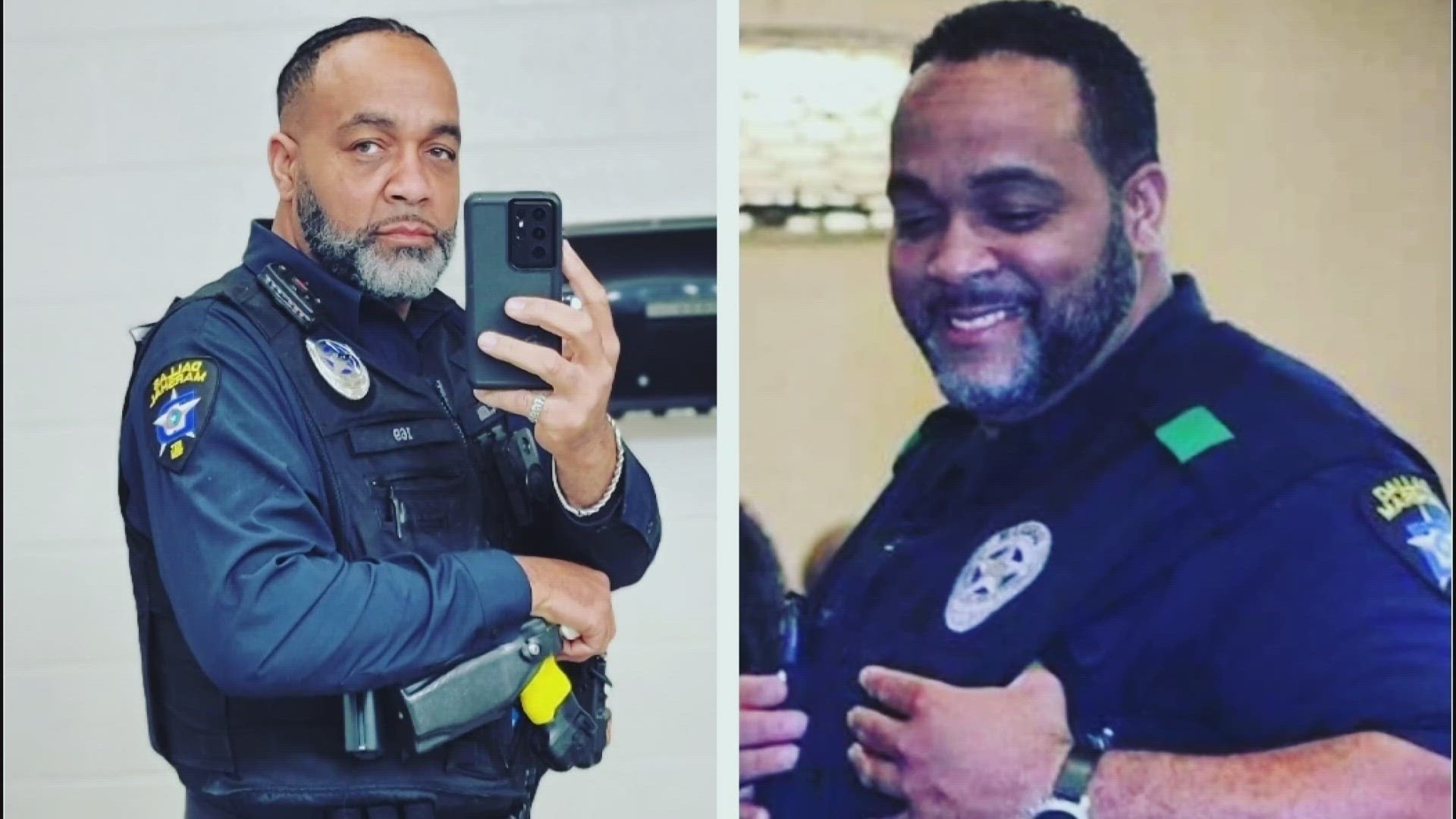DALLAS — Officer Chris Nixon knew something was wrong when he felt tingling in his feet and saw draw spots on his leg.
He said it was all due to him being overweight.
He weighed 387 pounds, but with his police uniform and gear on he weighed nearly 400 pounds.
"Getting in my car I would back up into it like an elephant and fall into the seat," said Nixon.
He couldn’t even buckle his seat belt.
"I literally broke my seatbelt, and I was really embarrassed by it," said Nixon.
He’s been an officer for 17 years with the Dallas Marshal’s Office. The former college football player said he was fit when he joined the force.
"I got the job, so I’m not worrying about it. There is a physical requirement, but like every officer once you’re in, your in," said Nixon.
Most police departments have physical requirements for recruits, but they don’t have requirements once they make the force.
For Nixon over the years, he got bigger.
"I eat for fun. That was nothing. I would wake up and eat," he said.
He said before he knew it he had diabetes, high blood pressure and poor blood circulation.
"Just walking up the stairs my blood pressure would go up. I was walking around 180 pounds over, some really high number,” said Nixon.
His daughter who is a nursing student said she noticed her dad was struggling with his health.
"Because he wasn’t getting the right circulation in his legs. It started in his toes, then his foot and then dark spots started going up his leg and that’s when I started to get really concerned for him," said Cierra Nixon.
The officer feared if he didn’t do something drastic he would die. His mother and brother both died from diabetes.
"I didn’t want to die from diabetes or high blood pressure," he said.
So, he went to Baylor Scott and White in Grapevine and got gastric sleeve surgery.
In this type of surgery, doctors make the stomach smaller by removing 75 to 85% of it.
Kim Euton was Nixon's bariatric nurse.
"This is not the easy way out. This is hard stuff especially after surgery. You have to maintain your fluid intake, your protein and make sure you’re eating healthy," said Euton.
Nixon said initially he was scared to have the surgery but as a single dad, he said he was motivated to get healthier.
Nixon fought back tears as he told WFAA, "I want to be here as long as I can. That’s important so that’s all the motivation I need."
His daughter also got emotional talking about her dad and wanting him to be around when she gets married and has children.
"I want them to be able to know their grandpa," she said.
Nixon said in the first three months after surgery he lost 30 pounds.
Now, he’s down 150 pounds.
He said he has energy to exercise every day and can now jump in and out of his squad car.
"The satisfaction at the end is so good," said Nixon.

